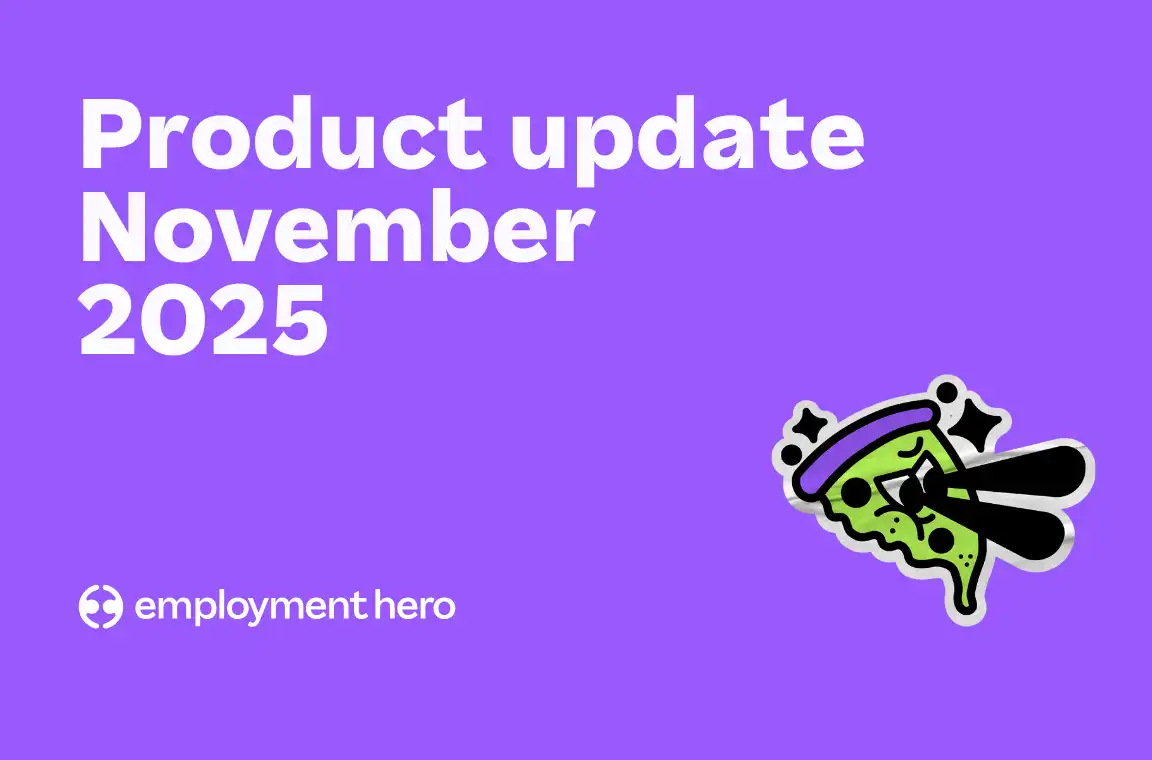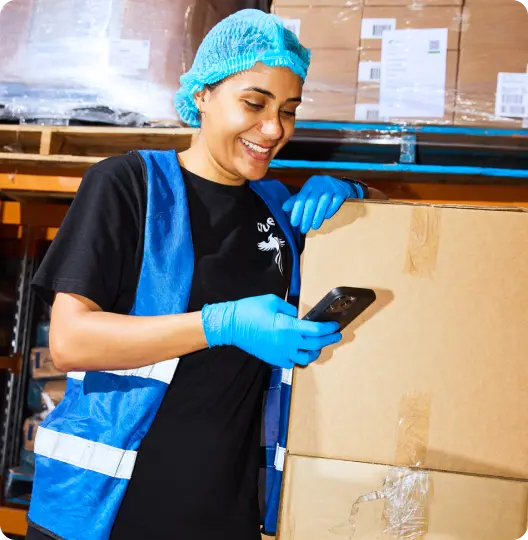Singaporean office lingo: 21 of the best phrases to know
Keen to expand your Singlish vocabulary or understanding of terms you’ve heard before? Here’s the lowdown on how it’s used in the workplace.

Have you come across any Singaporean lingo or acronyms which you just don’t get?
With Singapore being a multiracial and multicultural country, we’ve created our own colloquial language — Singlish, which is uniquely used and understood by locals who live and breathe it in our daily lives. It has been influenced by a smorgasbord of languages such as Malay and Tamil, as well as Chinese dialects such as Hokkien, Teochew and Cantonese.
Understanding Singlish can be complex, especially if you’ve had limited exposure to it. That’s exactly why we’re creating this handy guide. Regardless of whether you’re working with a Singaporean colleague in a global team, or managing a Singaporean as your direct report in a distributed workforce, it never hurts to expand your vocabulary of Singlish terms!
Disclaimer: Don’t take us too seriously lah ok? We’re just trying to spread some Singlish love around the workplace! And if you were wondering — yes, Singaporeans do switch from Singlish to ‘proper’ English, depending on the audience they’re communicating with.

Has new office jargon emerged since the pandemic?
As workplaces all over the world shifted towards remote working in the past few years, new phrases have inadvertently cropped up. Since the main forms of communication were over video calls and messages, using relevant phrases has become more important in conveying our intended meanings.
Terms like ‘Zoom fatigue’, ‘social distancing’, ‘burnout’, ‘hot-desking’, ‘asynchronous’, ‘social rust’, ‘The Great Resignation’, ‘take it offline’, and more have no doubt become commonplace. How many of these terms does your current workplace use?
“Workplace jargon is a staple of the modern organisation. Yet few things are more universally annoying.” — Harvard Business Review

Is jargon the same as slang?
Before we get started though, it’s important to understand that whilst people sometimes use the terms jargon and slang interchangeably, they’re not the same thing.
As defined by the Harvard Business Review, slang is informal and used in more social settings. They are, however, related. Both slang and jargon convey information about the speaker themselves, and also what the speaker is saying.
Workplace jargon is essentially corporate-speak, commonly used in business meetings or the usual water-cooler talk, whilst slang is typically used in office chit-chats.
What do the following Singaporean slang terms mean?
We’re here to give you the lowdown on what’s what in Singaporean slang, when used in the context of a workplace. Just like workplace jargon, these are staples used by the Singaporean workforce too.
1. ‘OTOT’
No, this doesn’t refer to overtime pay or anything similar. It’s actually an acronym which stands for ‘own time, own target’ — which means it’s up to you, feel free to complete this task at your own pace.
Example: “This task isn’t urgent, you can OTOT.”
2. ‘Sabo’
‘Sabo’ is an abbreviated form of the English word sabotage — and in the workplace, it’s often used when someone has intentionally made another person take the blame for their mistakes, or deliberately inconvenienced someone else with a task that they themselves did not want to do.
Example: “I wasn’t supposed to do this presentation, but my boss sabo me to do it.”

3. ‘Buay tahan’
A mixture of Hokkien (buay) and Malay (tahan), it’s combined to form the expression that one can no longer withstand or tolerate something any longer.
Example: “This guy just keeps playing games on his phone the whole day and doesn’t do any work at all, really buay tahan.”
4. ‘Catch no ball’
A direct translation from a Hokkien phrase (liak bo kiu), it means that one cannot understand what the other party is saying or meaning.
Example: “What did he say in the meeting just now ah? I catch no ball.”
5. ‘Pang gang’
This means you’re done for the day, you’ve completed your tasks and it’s time to clock out of work! It’s often used in a celebratory tone, when you’re finally ready to head out of the office.
Example: “Pang gang lo!!!!! See you all tomorrow.”

6. ‘Shag’
Ok just hear us out first — this isn’t what you think it is! Unlike its sexual connotation in British colloquialism, ‘shag’ simply means being tired or exhausted in Singlish. If you want to avoid some awkward situations in the workplace, this is one you should definitely remember.
Example: “Omg, I had to work till 3am last night and then come back to the office at 8am this morning, damn shag.”

7. ‘Kena arrowed’
Often used sarcastically, it refers to either yourself or someone else being unwillingly chosen or targeted to complete a task.
Example: “Poor James, he kena arrowed by his manager to put together a last-minute report for tomorrow’s board meeting.”
8. ‘Eye power’

Even Health Minister Ong Ye Kung uses this phrase.
‘Eye power’ is essentially used to describe someone who just stands by and watches, instead of participating, contributing, or helping out.
Example: “You better not just stand there and eye power ah, at the Q&A session later you chip in a bit also please.”
9. ‘Zai’
It is often used to describe someone as being a pro at something, amazing, or a high achiever.
Example: “Wah he damn zai, he’s already at Director level when he’s only 30 years old.”
10. ‘Wayang’
‘Wayang’ is a Malay word to describe acting in a performance or a show. It is used in a sarcastic tone, to describe someone who puts up a show to look good in front of their superiors.
Example: “James is such a wayang king. When his bosses are around, he acts as if he’s very hardworking, typing away frantically on his keyboard. When they’re gone? He just sits back and starts scrolling his phone non-stop.”

11. ‘Shiok’
One of the most common Singlish terms around, ‘Shiok’ is used frequently in daily conversations. Although it is usually used to describe great satisfaction when eating delicious food, it is often also used to describe favourable situations.
Example: “Heard the company’s going to give us 5 months worth of bonus this month. Shiokkkkkk!”
12. ‘Siao on’
A mixture of Hokkien and English, it is used to describe a person who is overzealous and over-enthusiastic in everything they do — they are constantly on the ball and raring to volunteer for tasks or get stuff completed all the time.
Example: “Amanda damn siao on, everything the boss wants done, she will be the first one to volunteer.”

13. ‘Spoil market’
Thanks to somebody who is ‘siao on’, it usually leads to a situation of ‘spoiling the market’ for everyone else. Someone who is a high achiever or does something incredibly well makes everyone else look bad and unmotivated at work.
Example: “Can Amanda not spoil market? She’s making the whole team look terrible just because she’s willing to work long hours and doesn’t care about work-life balance.”
14. ‘Chop chop’
Primarily used to instil urgency and hurry people along with tasks, so employees can end work as soon as possible.
Example: “Eh let’s chop chop get this done then we can go home.”
15. ‘Sian’
A ubiquitous phrase used by many, ‘sian’ conveys boredom, lack of enthusiasm, annoyance, and exasperation in different situations.
Example: “Sian, I definitely need to OT tomorrow. I had meetings non-stop today and couldn’t get any work done at all.”
16. ‘Kaypoh’
Referring to those particular colleagues who are always digging for information and spreading office gossip around, ‘kaypoh’ means being a busybody, constantly prying into the business of others.
Example: “Karen is so kaypoh, she’s always asking me very intrusive personal questions at work!”

17. ‘Saikang warrior’
‘Saikang’ refers to menial tasks at work that no one wants to do — either the boring, unpleasant, administrative tasks that are very time-consuming, or extra tasks not within your job scope which you have to clear.
A ‘saikang warrior’ is hence used to describe someone who completes these undesirable tasks out of their goodwill, or has been forced into doing so quietly in the background, not for their own benefit, but for the benefit of others.
Example: “Thanks to Sally the saikang warrior, we managed to finish the report in time because she did all the data crunching needed.”
What about lunchtime lingo?

18. ‘Chope’
In Singapore, there’s an unspoken practice where you have to reserve your seat in coffee shops and hawker centres before getting your food. This is known as ‘choping’, and most people do so with tissue packs, umbrellas, or any random, non-valuable item they can find with them.
It’s to ensure that you have a seat ready for you to sit down and start eating once you get your food, rather than wait around a crowded coffee shop or hawker centre for 10 to 15 minutes, holding your tray of food while it gets cold.
Example: “Let’s go chope seats now, if not once 12pm hits and the lunch crowd comes in, it’ll be difficult to find seats.”
19. ‘Dabao’
‘Dabao’ essentially means to take away food. A Singaporean-Mandarin term, it’s often used during lunch time conversations when employees are deciding whether to eat out or ‘dabao’.
Example: “I have a meeting at 12.30pm so I don’t have enough time to eat here, just gonna dabao and eat at my desk.”
20. ‘Makan’
‘Makan’ means ‘to eat’ in Malay. It’s also understood and used by every Singaporean regardless of race, because we’re all avid foodies, and hey — lunchtime is one of our favourite times of the day at work ok?
Example: “You hungry not? Let’s go makan!”
21. ‘Bojio’
Literally translated from Hokkien meaning ‘no invite’, ‘bojio’ is used to jokingly call someone out when you’re not invited to an event, gathering, or party. It can also be used when inviting someone, as a disclaimer that they are officially being included.
Example: “Hey, the APAC CEO is in office today so he’s treating everyone to a good meal for lunch, you wanna join us? Don’t say I bojio.”
Take your company culture to the next level
Now that you’re armed with this newfound knowledge — make workplace conversations more fun and interactive by incorporating them! Small talk at work has been shown to enhance an employees’ positive social emotions daily, and make them feel more emotionally connected.
Managers can embrace small talk to help improve relationships within teams, as well as boost team morale and productivity. Creating space for casual conversations at work leads to increased collaboration, creativity, and inclusiveness. It allows your culturally diverse employees to feel understood, valued, and energised, so they can produce their best work.
Keen to find out more? Download our leader’s guide to company culture today.
Related Resources
-
 Read more: Product Update: January 2026
Read more: Product Update: January 2026Product Update: January 2026
Welcome to the January 2026 product update from the Employment Hero team. We’ve got lots to share around Custom Forms,…
-
 Read more: Product Update: December 2025
Read more: Product Update: December 2025Product Update: December 2025
Welcome to the December 2025 product update from the Employment Hero team. We’ve got lots to share around Custom Forms,…
-
 Read more: Product Update: November 2025
Read more: Product Update: November 2025Product Update: November 2025
Welcome to the November 2025 product update from the Employment Hero team. We’ve got lots to share around Workflows, Rostering,…










